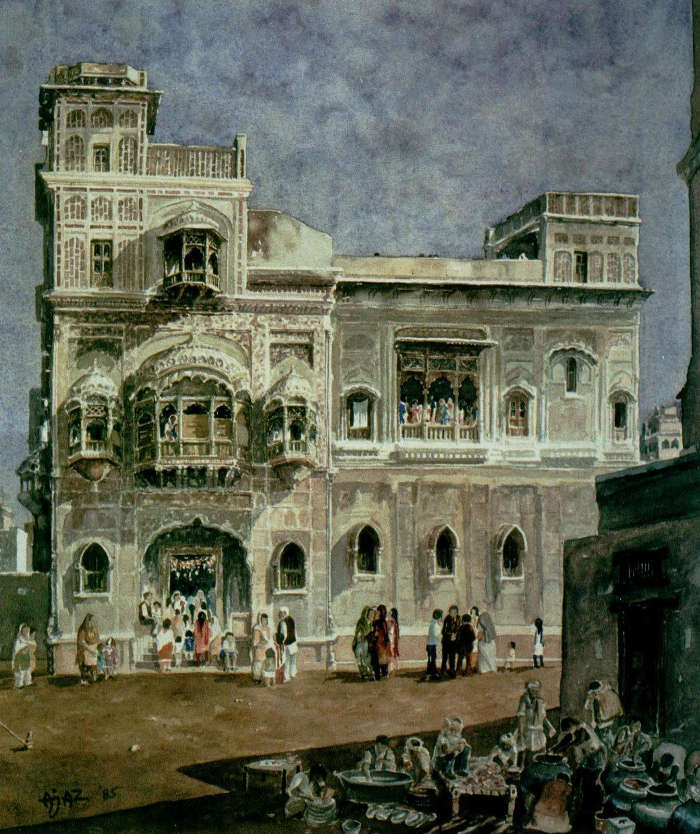FWP:
SETS == REPETITION
HOME: {14,9}
SOUND EFFECTS: {26,7}
When the beloved came to stay next door, not only did the speaker almost die of joy, but the very doors and walls of his house adored (sorry, I couldn't help it) the doors and walls of her house. Why did they adore them? On one reading of the crucial phrase sāye se , it was because they fell under the spell of the exquisitely cool and sensual shade (and its metaphorical extensions, shelter and protection) that the newcomers provided to the speaker's house, which had been for so long burning with passion.
And how did the doors and walls show their adoration? On another (and even more piquant) reading of sāye se , they did so by devotedly providing shade to the newcomers, self-sacrificingly (see the definition of fidā above) interposing themselves between the cruel sun and the beloved's house.
As Josh observes, this verse is an example of 'elegance in assigning a cause'. The observed fact that the shadow of one house often extends over the house next door has now been given a far more romantic cause than a mere explanation of planes and angles.
There's also some conspicuous wordplay: ham-sāyah , 'neighbor' or, literally, 'shade-sharer', is echoed in sāyah , 'shade'. And look at that second line: fidā dar-o-dīvār par dar-o-dīvār is made up of a mere handful of consonants and vowel sounds, combined and recombined to create almost the effect of a drum-beat.
Note for grammar fans: ā rahā is a colloquially abbreviated form of ā
kar rahā ('having come, remained'). This kind of kar deletion is well established, nowadays as well as in Ghalib's time. More examples: {51,5x}; {60,8}; {68,6x};
{172,1} (an intriguingly optional case, noted by Faruqi as well).

Nazm:
That is, the shade of my doors and walls sacrificed itself [balāʾeñ lenā] for her doors and walls. (53)
== Nazm page 53